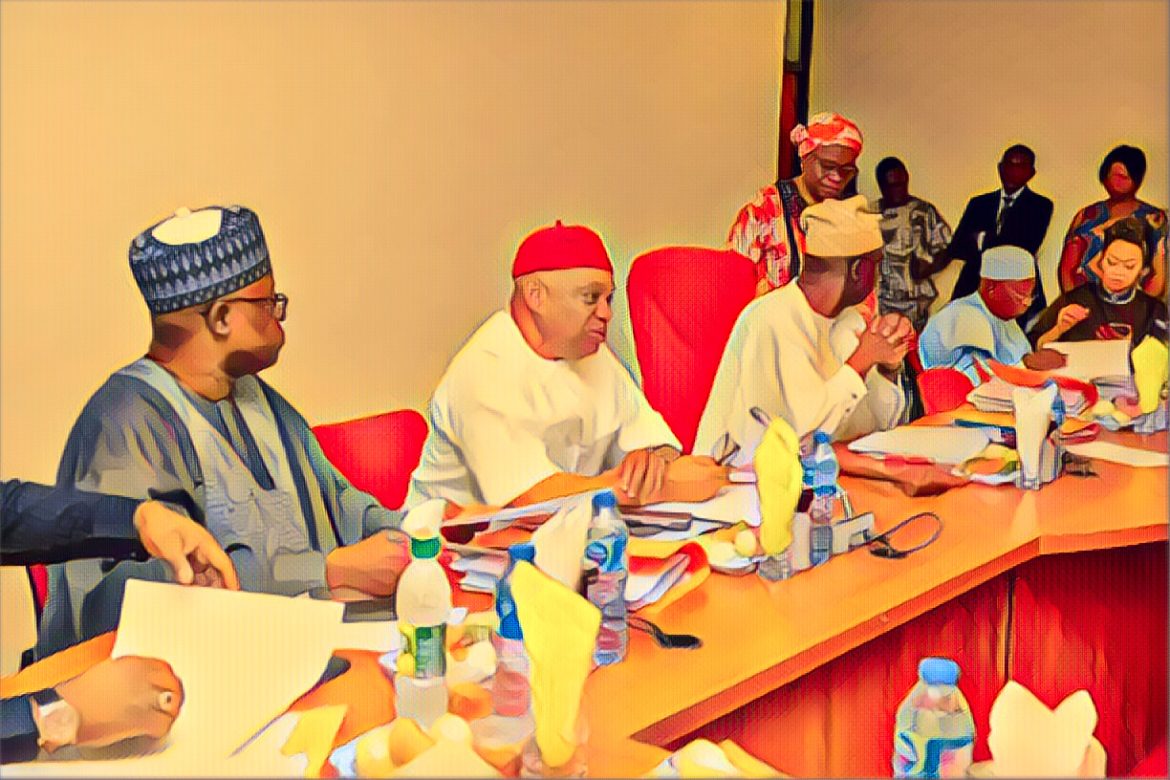In a crucial session on February 22, 2024, the Senate Committee on Banking, Insurance, and Other Financial Institutions, under the stewardship of Tokunbo Abiru, undertook a rigorous examination of the nominees for the Monetary Policy Committee (MPC) of the Central Bank of Nigeria (CBN). This examination was not just a procedural step but a deep dive into the competence of these individuals to navigate Nigeria through its current economic turbulence, marked by acute forex instability and a daunting food crisis.
President Bola Tinubu, recognizing the gravity of Nigeria’s economic predicament, had forwarded to the Senate the names of key nominees for the MPC, signaling a proactive step towards bolstering the committee’s role in monetary policy formulation. Among the nominees scrutinized were notable figures such as Alhaji Lamido Yuguda, the Director-General of the Securities and Exchange Commission (SEC); Dr. Mustapha Akinkunmi from Lagos; Mrs. Aku Odinkemelu from Imo; Professor Murtala Sagagi from Kano; Bamidele Amoo from Kwara, and Alloysius Uche Ordu, each bringing to the table a wealth of experience from diverse economic backgrounds.
The session revealed insightful perspectives on tackling the nation’s forex volatility and the spiraling food crisis. Alhaji Yuguda emphasized the critical need to protect Nigeria’s foreign reserves and cautioned against the unbridled printing of fiat money, which lacks intrinsic value. He advocated for a cautious approach to money supply, correlating it with the country’s nominal GDP to stabilize the Naira’s value.
Dr. Akinkunmi, representing Lagos State, proposed a shift in policy focus from inflation targeting to directly addressing exchange rate volatility. He identified food inflation as a critical driver of the overall inflationary trend, suggesting that enhancing the production and distribution of food commodities could significantly mitigate this issue.
Professor Sagagi critiqued the closure of Nigeria’s borders, arguing that it disrupted traditional trade flows essential for food distribution within the region. He stressed the importance of aligning fiscal policies with monetary strategies to achieve meaningful outcomes.
Mrs. Odinkemelu, from Imo State, echoed the sentiment that productivity is fundamental to resolving the Naira’s volatility and addressing food inflation. Her emphasis on productivity underscored a common theme among the nominees: the need for holistic, integrated approaches to monetary policy that consider the broader economic landscape.
The screening session underscored the Senate Committee’s urgency in addressing Nigeria’s economic challenges. With the MPC meeting looming on the horizon, the committee’s chair, Abiru, articulated the nation’s expectations for concrete solutions to rampant inflation, Naira volatility, and the broader economic malaise.
This dialogue between Senate Committee members and MPC nominees illuminates the complex interplay between monetary policy and economic realities on the ground. The nominees’ testimonies reflect a shared understanding that Nigeria’s economic revival requires nuanced, multifaceted strategies that go beyond traditional monetary policy tools.
As Nigeria stands at a critical economic juncture, the insights offered by these nominees suggest a path forward that hinges on safeguarding national reserves, enhancing productivity, and fostering an environment conducive to sustainable economic growth. The Senate’s role in this process is not merely to confirm nominees but to ensure that those appointed to the MPC possess the vision, expertise, and commitment to navigate the country through its current challenges towards a more prosperous and stable economic future.
The unfolding narrative of Nigeria’s economic policy direction, as seen through the lens of this screening session, is a testament to the intricate dance of governance, policy formulation, and implementation required to steer a nation towards growth and stability. As the MPC prepares for its forthcoming meeting, the decisions made and the strategies deployed will be closely watched by Nigerians eager for relief from the prevailing economic hardships.


